Search
Search Results
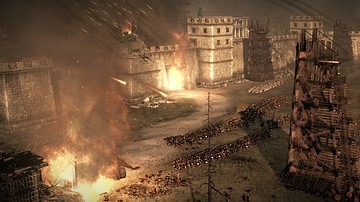
Definition
Demetrius I of Macedon
Demetrius I of Macedon, also known as Demetrios Poliorcetes, the 'Besieger' (c. 336 - c. 282 BCE), was a Macedonian king who, along with his father Antigonus I, fought for control of Alexander the Great's empire in the 'Successor Wars'. After...
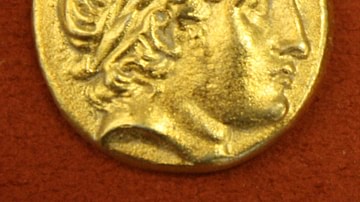
Definition
Macedon
Macedon was an ancient kingdom located in the north of the Greek peninsula first inhabited by the Mackednoi tribe who, according to Herodotus, were the first to call themselves 'Hellenes' (later applied to all Greeks) and who gave the land...
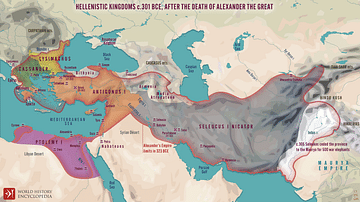
Definition
Wars of the Diadochi
On June 10, 323 BCE Alexander the Great died in Babylon. Although historians have debated the exact cause most agree that the empire he built was left without adequate leadership for there was no clear successor or heir. The military commanders...
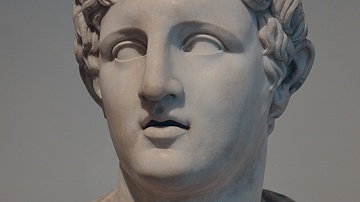
Image
Demetrius I of Macedon
Marble portrait bust of Demetrius I of Macedon, also called Poliorcetes, "The Besieger" (336-283 BCE), Roman copy from the 1st century CE of a Greek original from the 3rd century BCE (Naples National Archaeological Museum).
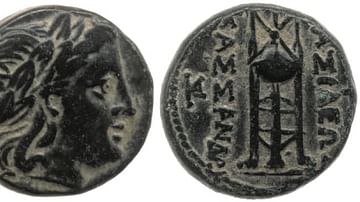
Definition
Cassander
Cassander (c. 355-297 BCE, r. 305-297 BCE) was self-proclaimed king of Macedon during the political turmoil following Alexander's death. Born in Greece as the son of Antipater, the regent of Macedon and Greece in the absence of Alexander...
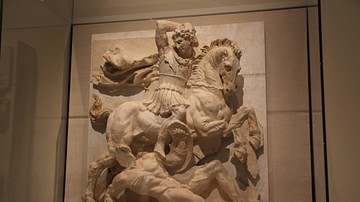
Definition
Hellenistic Warfare
When Alexander the Great died in 323 BCE, he left behind an empire devoid of leadership. Without a named successor or heir, the old commanders simply divided the kingdom among themselves. For the next three decades, they fought a lengthy...
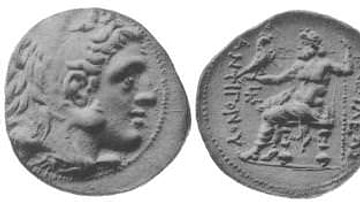
Definition
Antigonus I
Antigonus I Monophthalmus ("the One-Eyed") (382 -301 BCE) was one of the successor kings to Alexander the Great, controlling Macedonia and Greece. When Alexander the Great died in 323 BCE, a conflict known as the Wars of the Diadochi ensued...
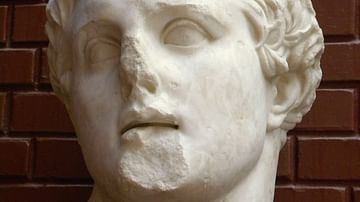
Definition
Lysimachus
Lysimachus (c. 361-281 BCE) was one of Alexander the Great's trusted bodyguards and a member of his Companion Cavalry. Although he obtained Macedonian citizenship, his father was a Thessalian named Agathocles. After Alexander's death in...
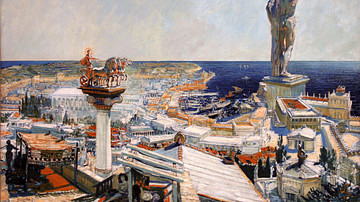
Definition
Colossus of Rhodes
The Colossus of Rhodes was a gigantic 33-metre-high bronze statue of the sun god Helios which stood by the harbour of that city from c. 280 BCE. Rhodes was then one of the most important trading ports in the ancient Mediterranean and the...
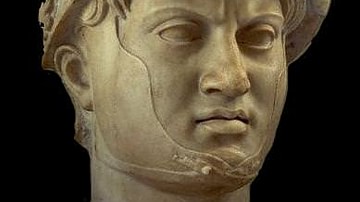
Definition
Pyrrhus
Pyrrhus (also Pyrrhos or Phyrrhus, c. 319 - 272 BCE ) was the king of Epirus in northern Greece between 306 and 302 BCE and again between 297 and 272 BCE. Winning great victories against the armies of Macedon and Rome, he is considered one...